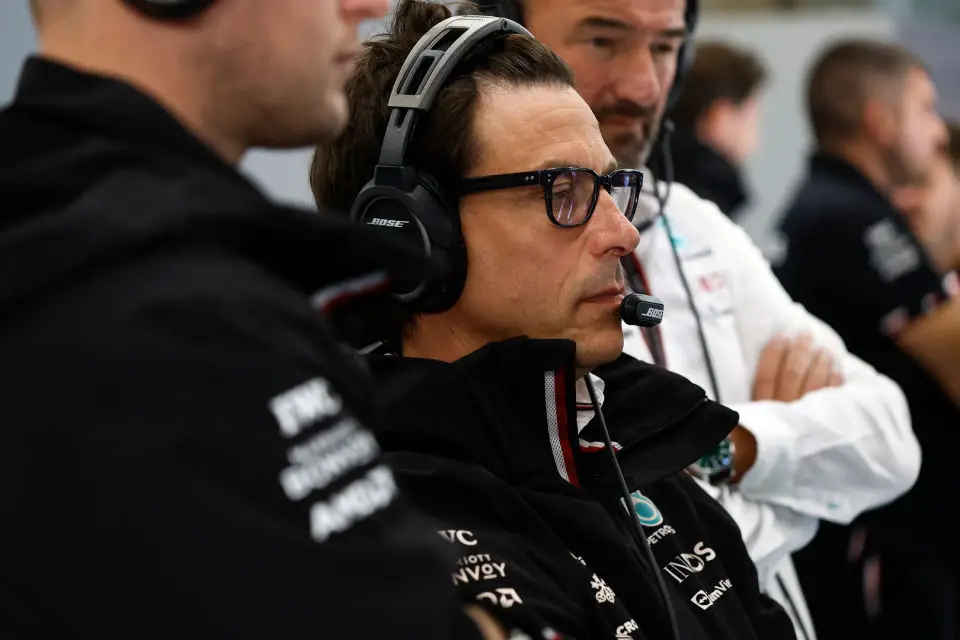F1 News: Mercedes’ Simulator Woes – Wolff’s Insight on Discrepancies Between Simulations and Track Reality
In the wake of a challenging Saudi Arabian Grand Prix, Toto Wolff, Mercedes team principal, revealed a critical simulator correlation issue at Mercedes. Their simulations are not accurately reflecting real track performance, a concern that was glaringly evident during the recent race.
Key Takeaways:
- Toto Wolff highlighted an ongoing issue with Mercedes’ simulator, stressing its failure to accurately predict car performance on the track.
- Despite promising simulations, Mercedes faced a stark reality in Saudi Arabia, with the car underperforming compared to expectations.
- Wolff’s comments revealed a deeper, more fundamental issue in correlating simulator data to real-world track performance, a challenge that has persisted since the 2022 season.

The 2024 Formula 1 season has been filled with ups and downs for Mercedes, a trend that was starkly evident at the Saudi Arabian Grand Prix. After showing potential in Bahrain, Mercedes’ performance in Saudi Arabia was a reality check. The W15 car, driven by George Russell and Lewis Hamilton, struggled, especially in high-speed corners, leaving them trailing behind their competitors.
Toto Wolff, speaking with candor, pinpointed a critical problem the team has been grappling with since last season. The disparity between what their simulations predict and the actual performance on the track has been a significant hindrance. Wolff expressed this concern, saying, “It’s just the high-speed variant where we are losing the lap time. There is only so much you can tune here. Our simulations point us in a direction, and this is the kind of set-up range that we then choose.”
This gap in simulation and real performance poses a severe challenge for Mercedes’ technical team, led by James Allison. Their efforts to align the simulated data with the actual track performance haven’t borne the expected results. This discrepancy is not only about adjustments like the rear wing but touches on the fundamental aspects of car performance and speed, as Wolff elaborated.
The challenges at Saudi Arabia were made even more evident by the performance of Mercedes’ customer teams. Aston Martin and McLaren, using Mercedes engines, showcased better pace, with Russell struggling to overtake Fernando Alonso’s Aston Martin and Hamilton finding Lando Norris’ McLaren a formidable barrier.
As the season progresses, the Brackley-based team faces the pressing task of resolving these simulation discrepancies to harness the full potential of their car. The insights from Wolff not only shed light on the technical difficulties but also open up discussions about the evolving landscape of Formula 1, where simulation technology plays a crucial role in shaping race strategies and car development.




